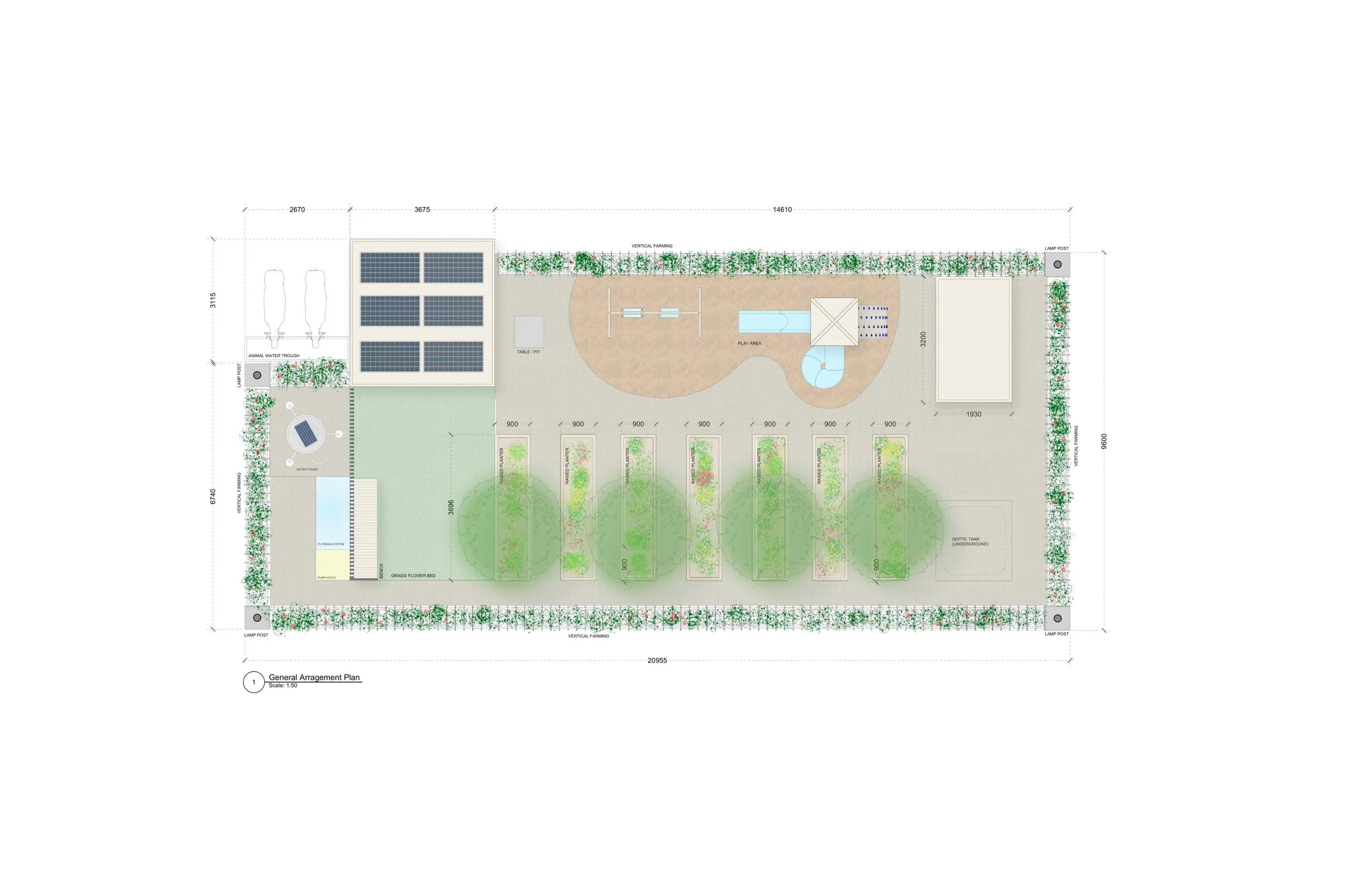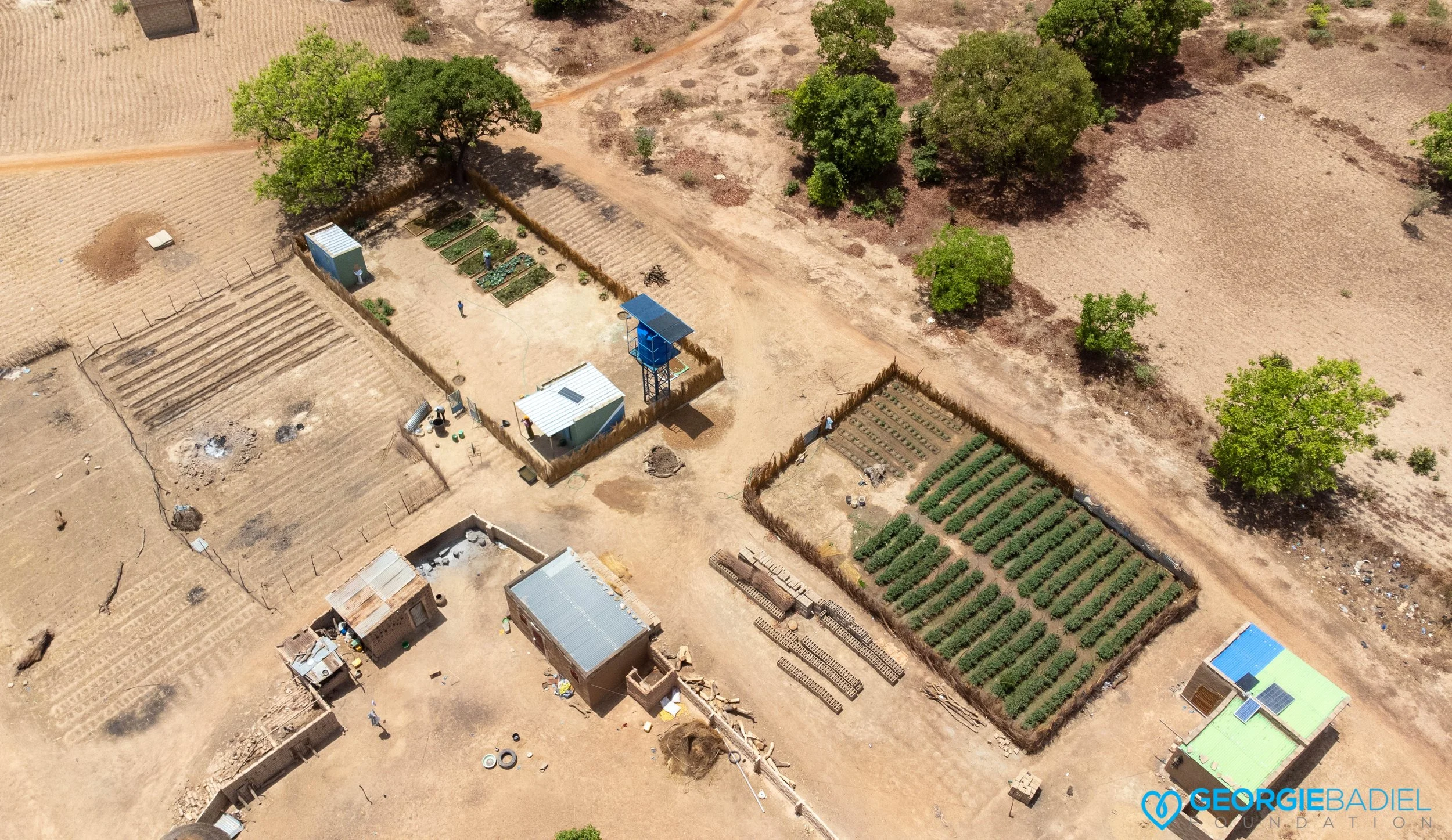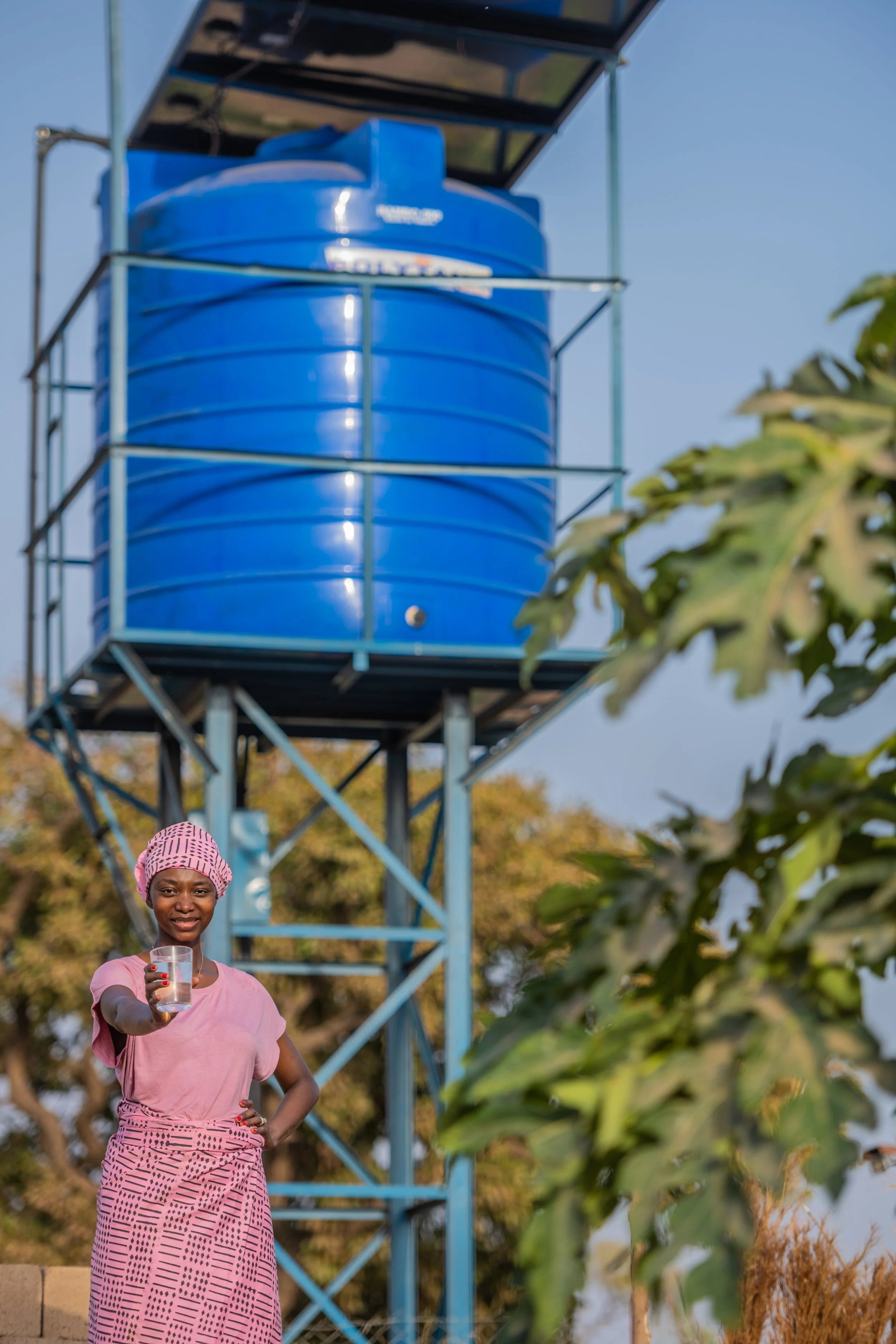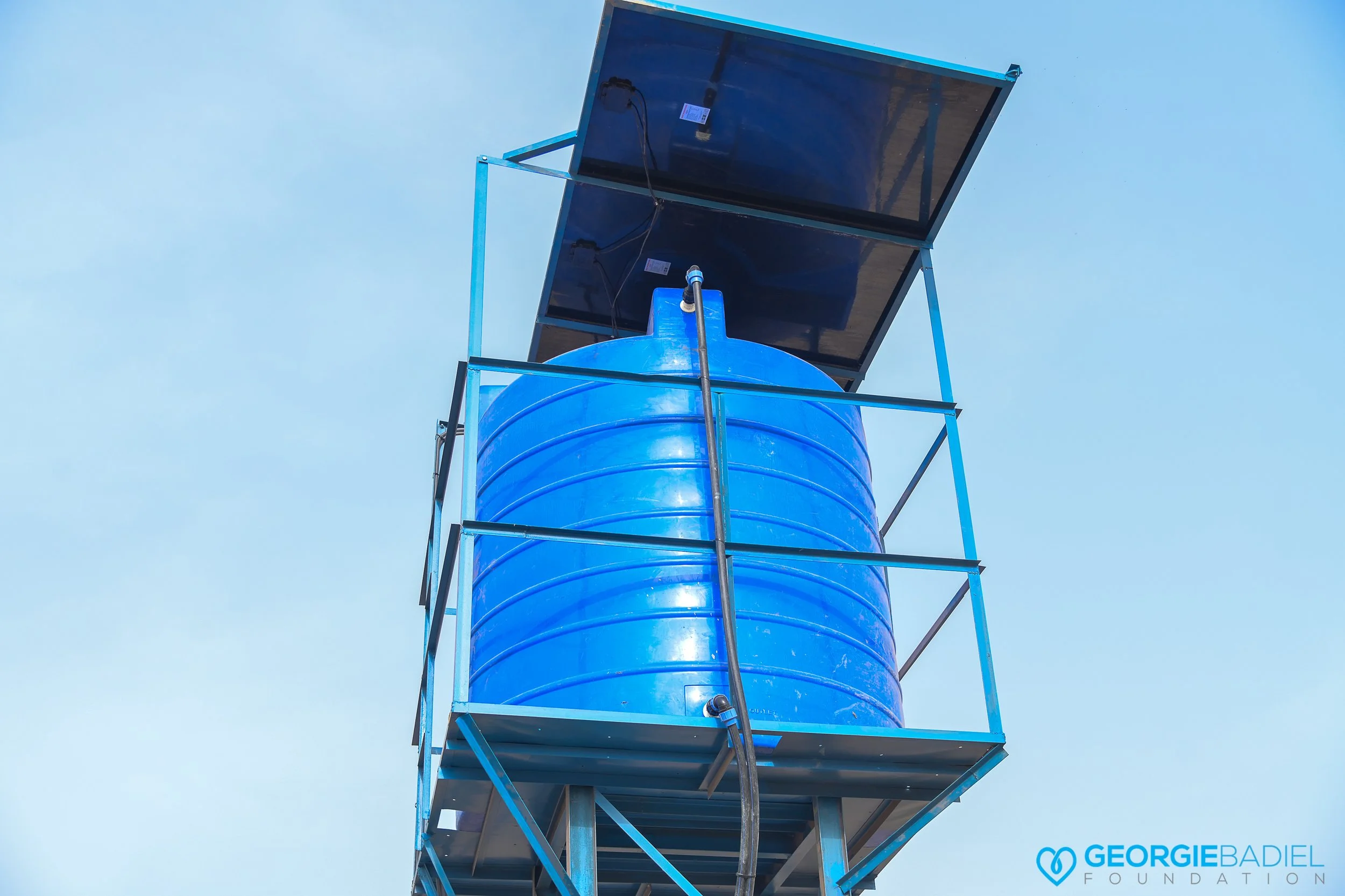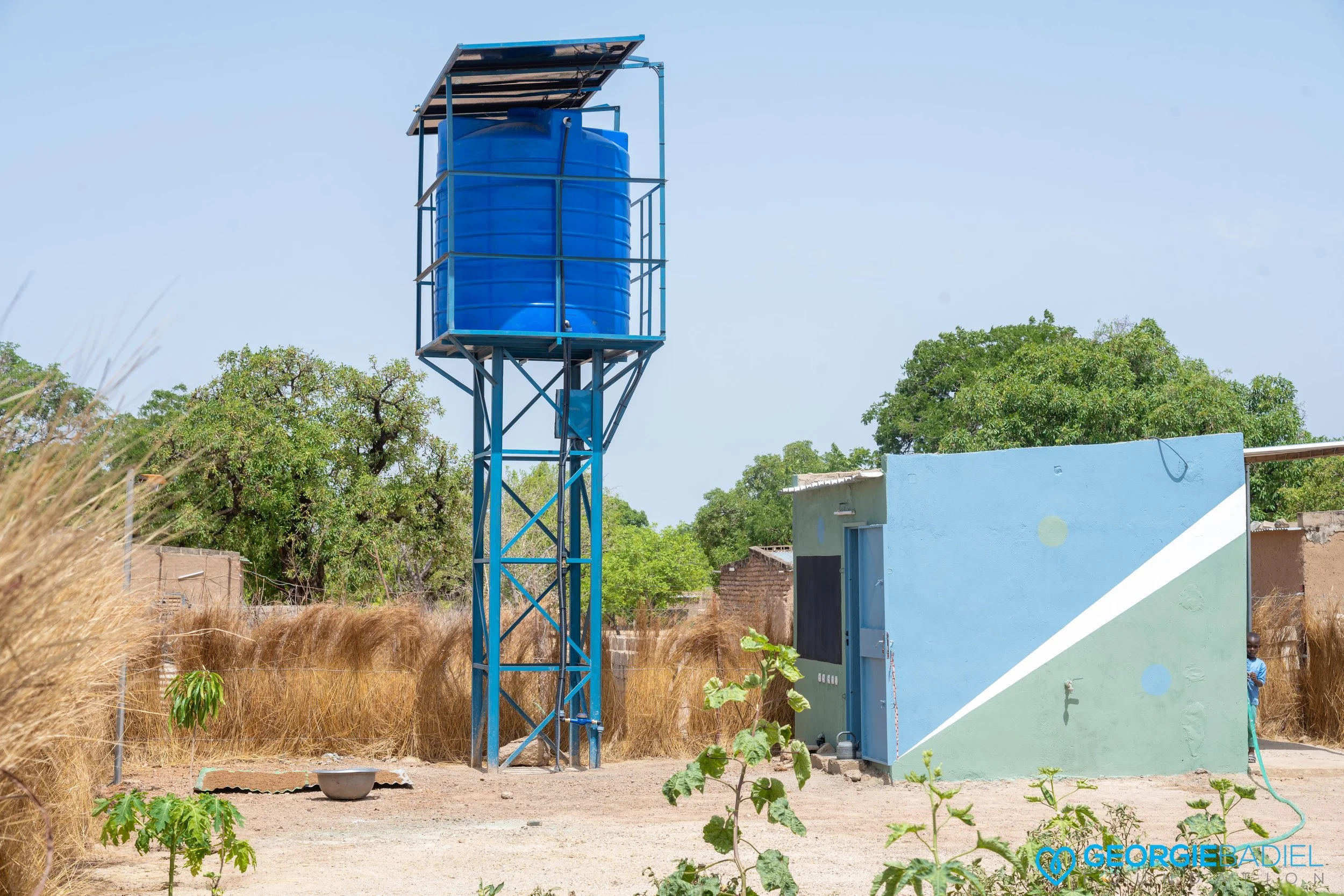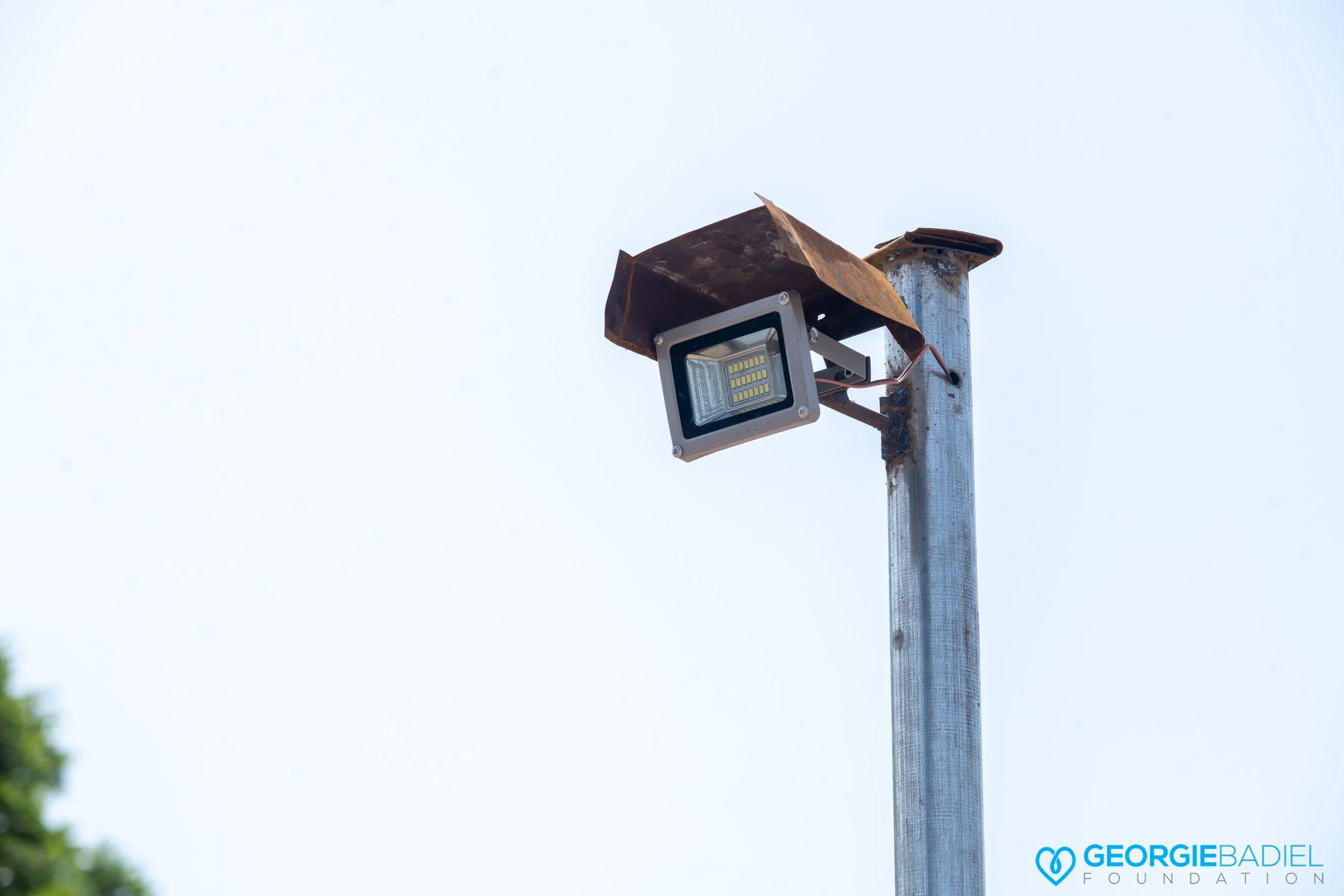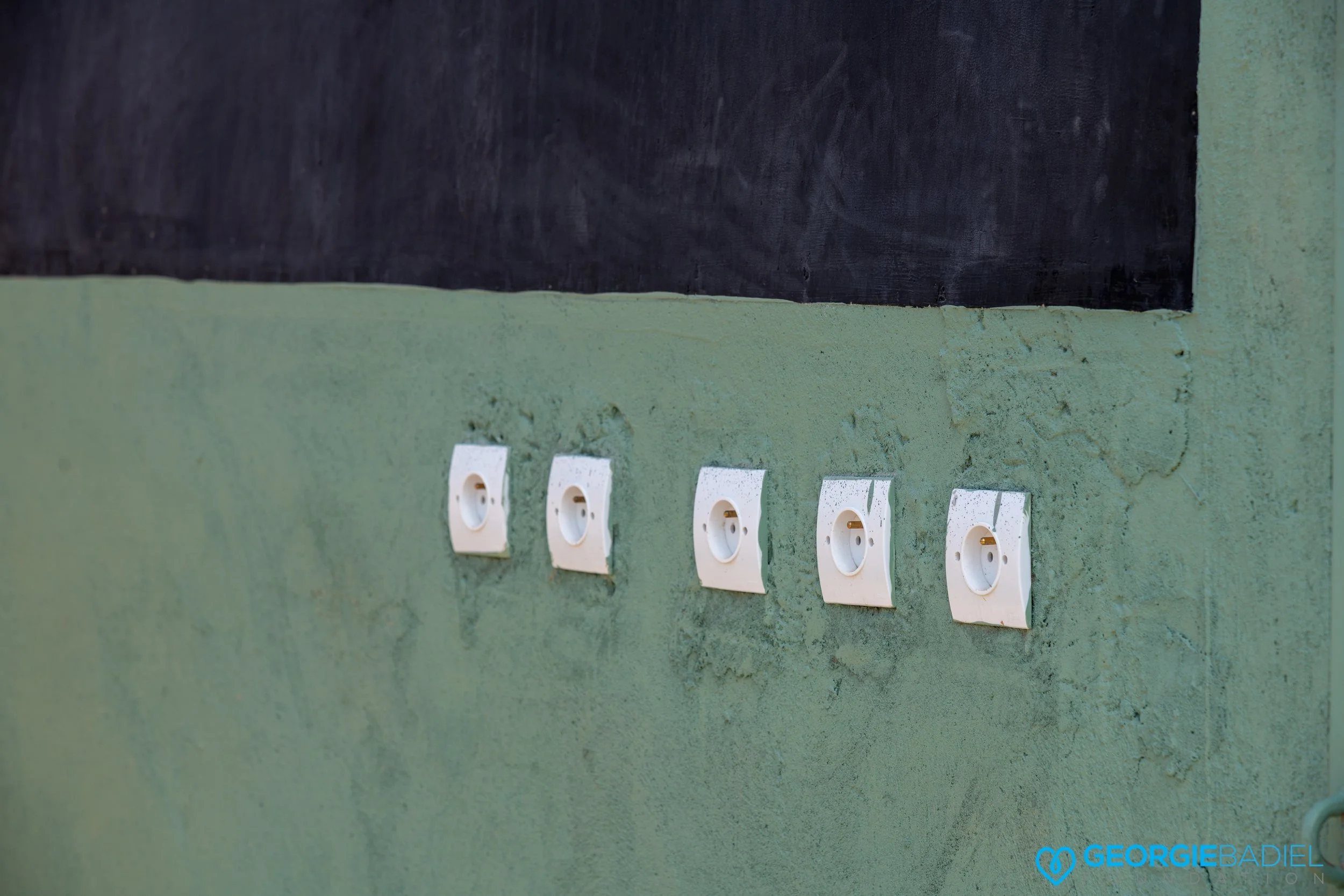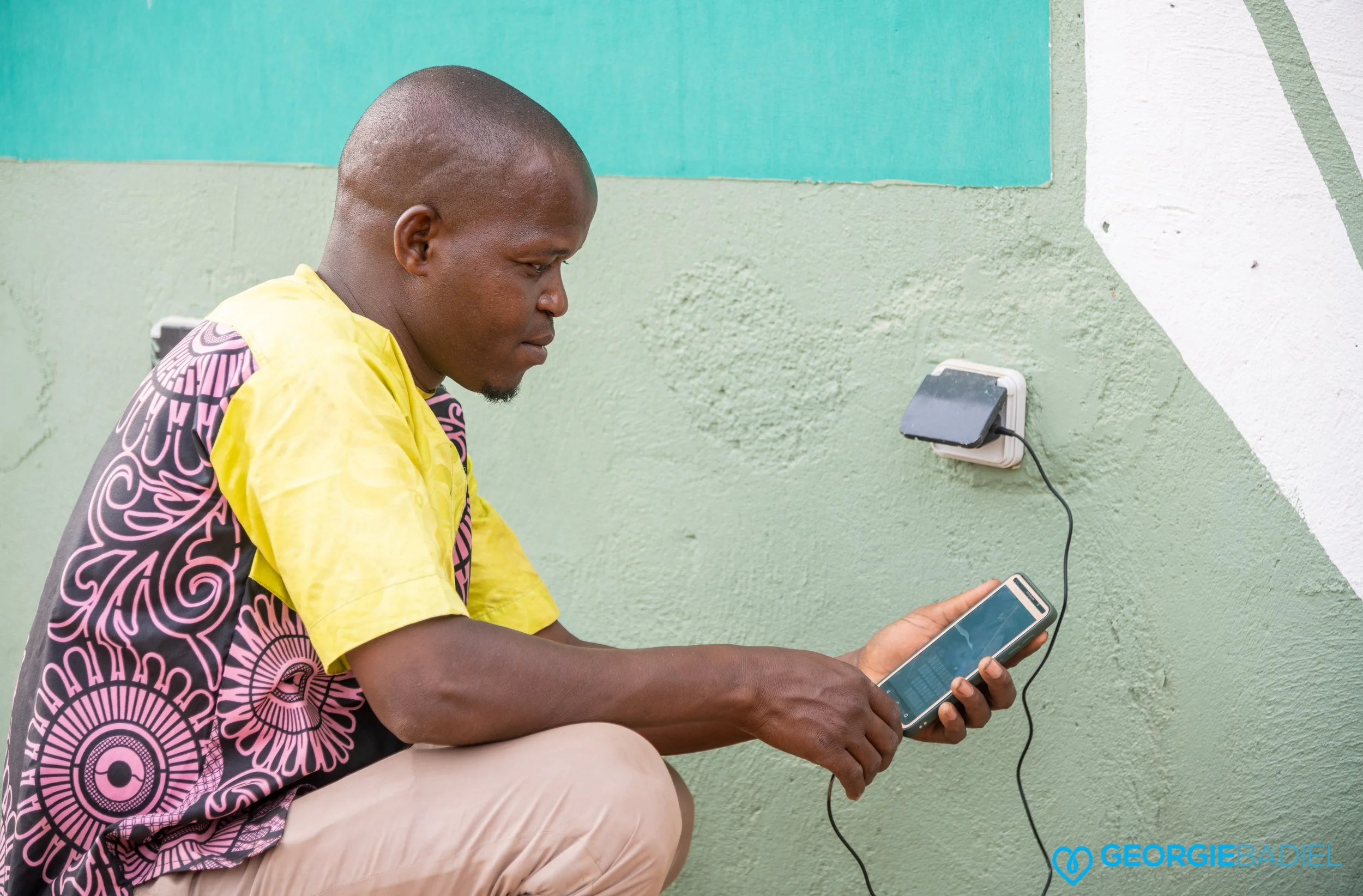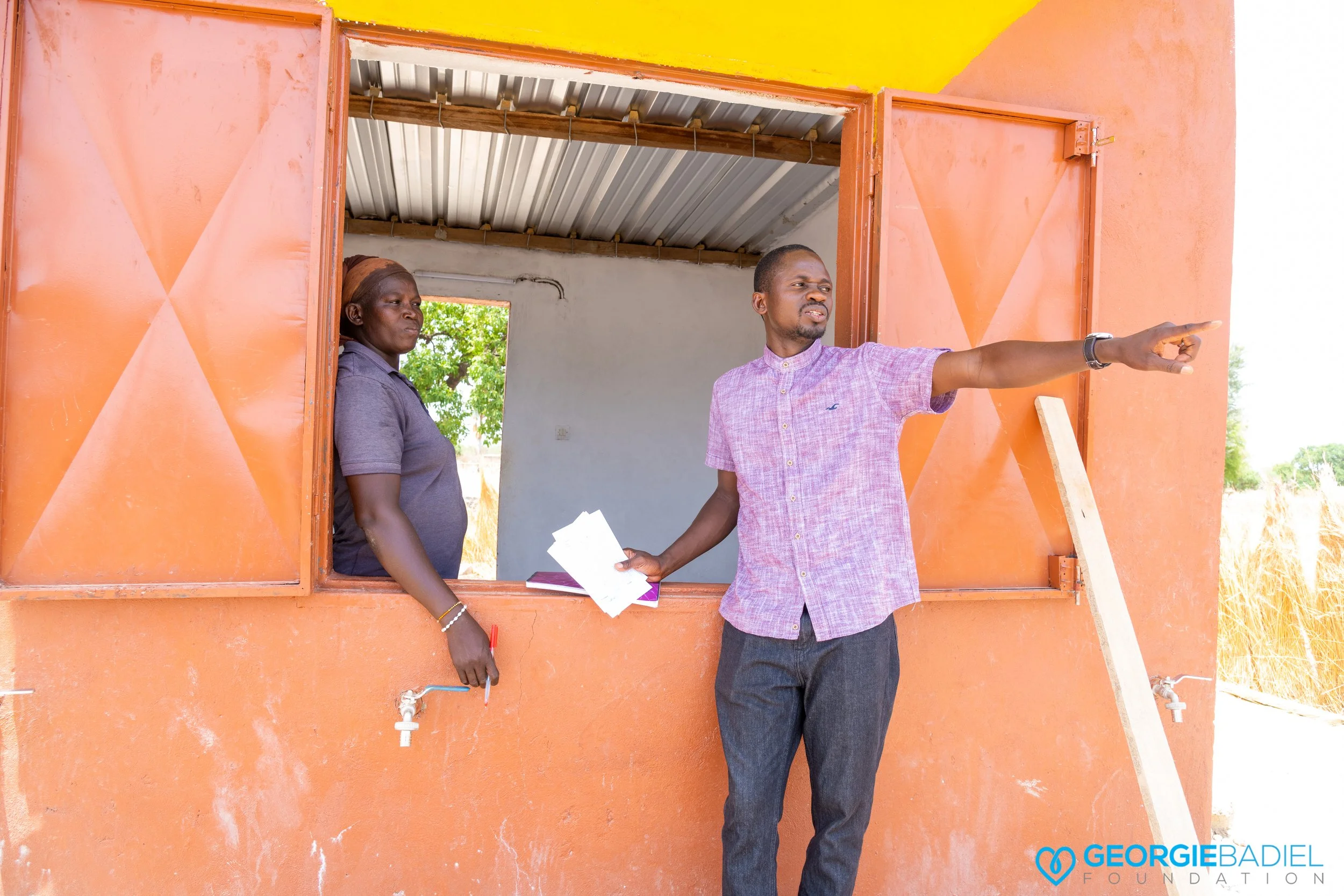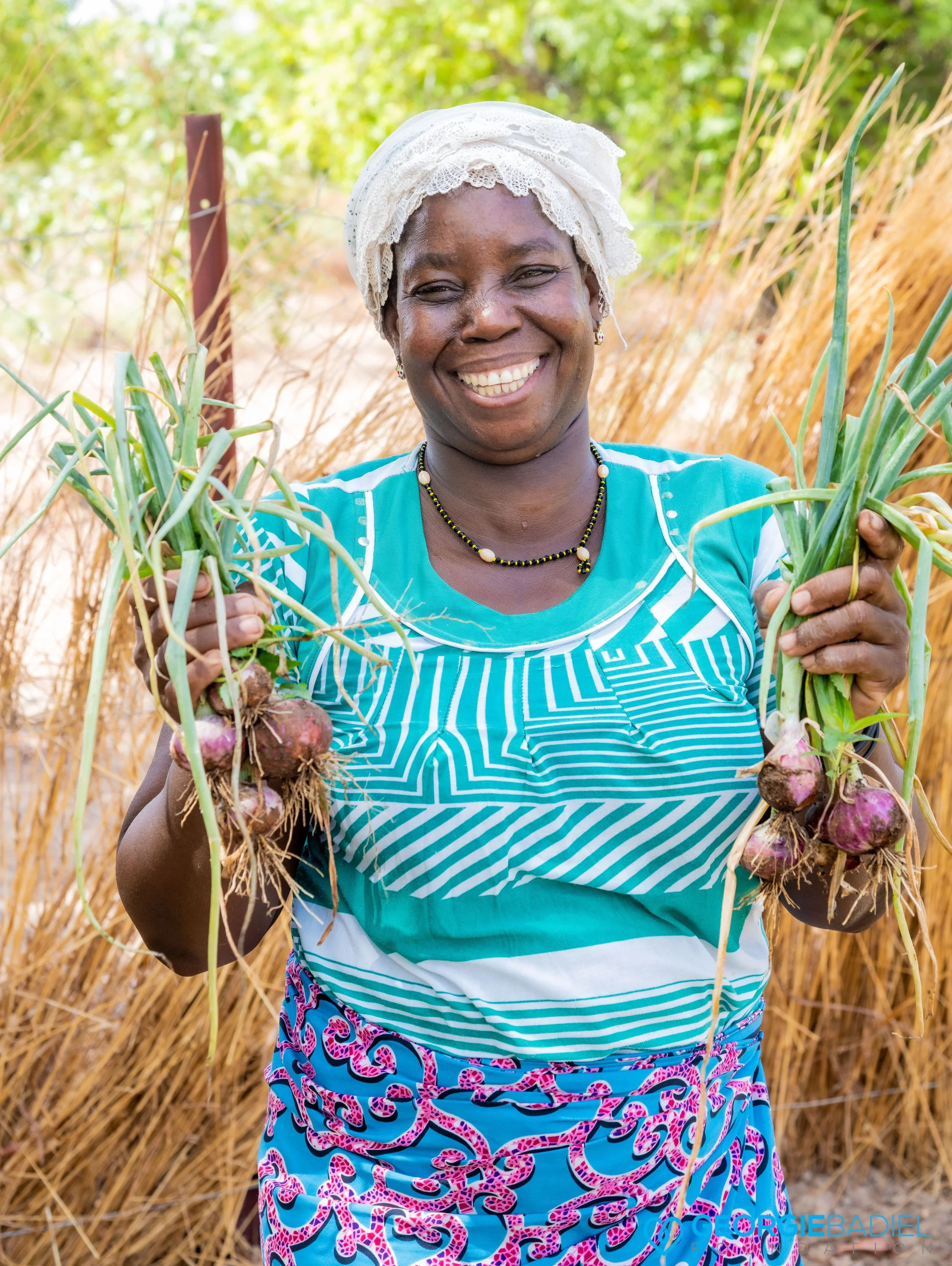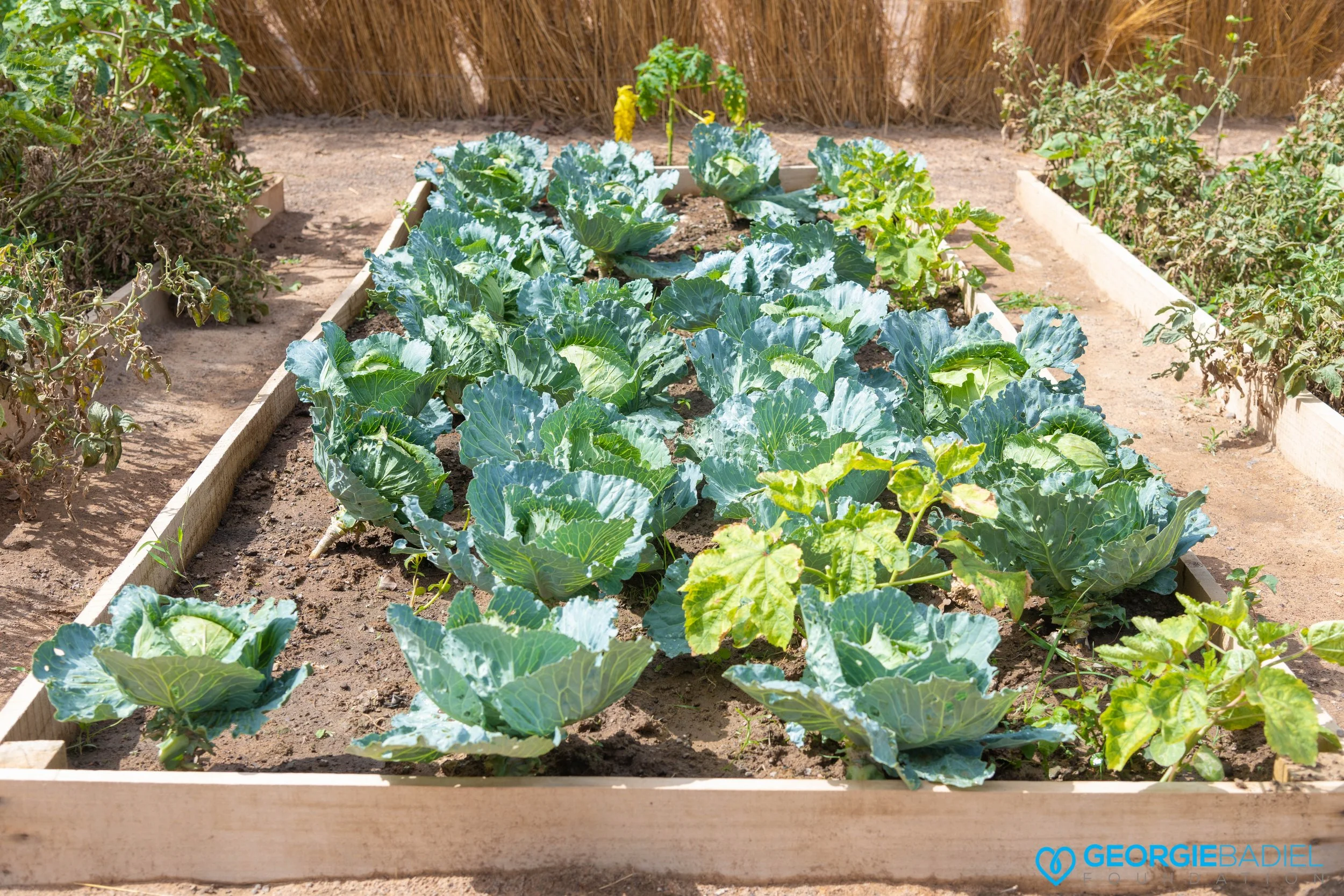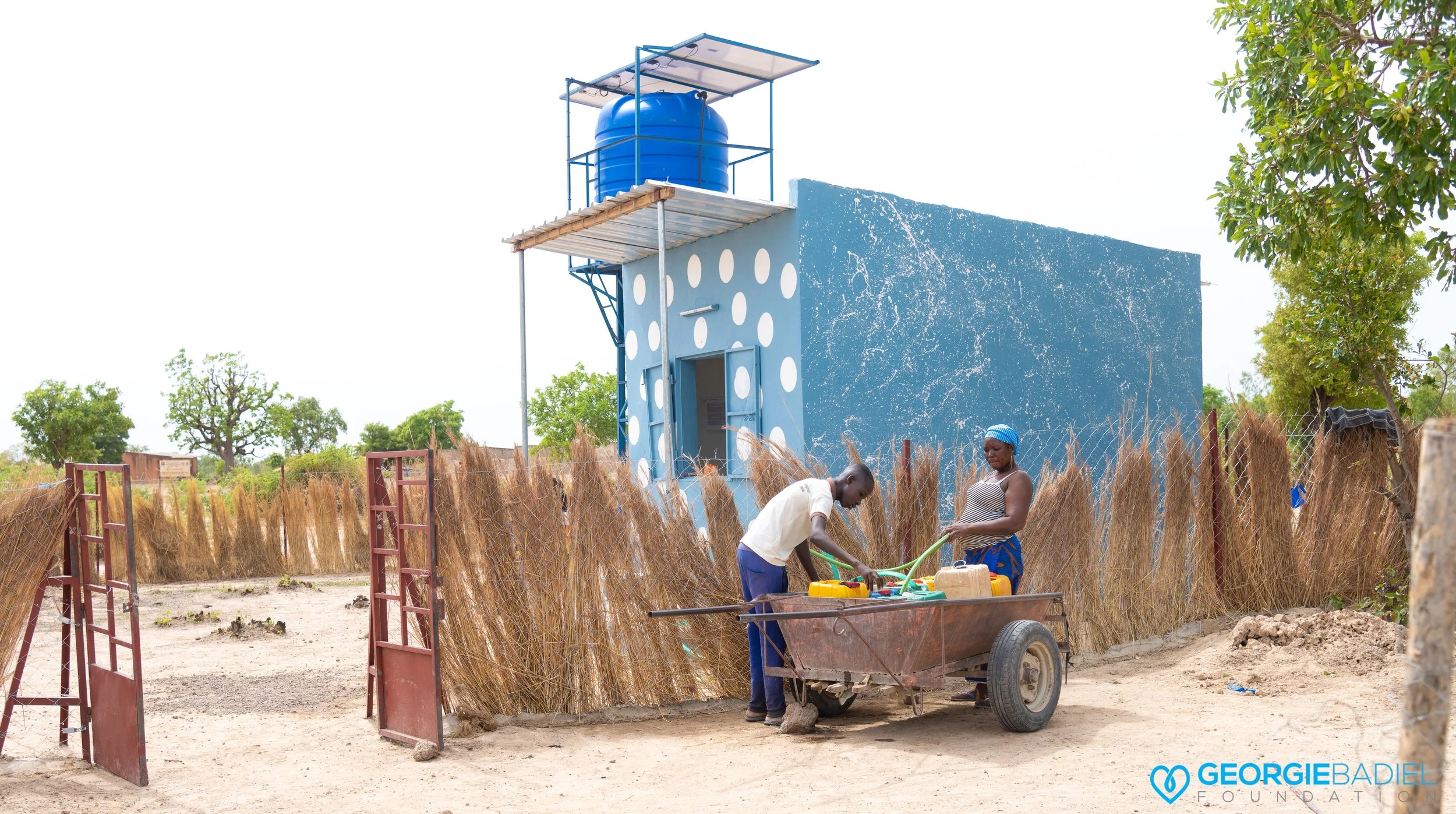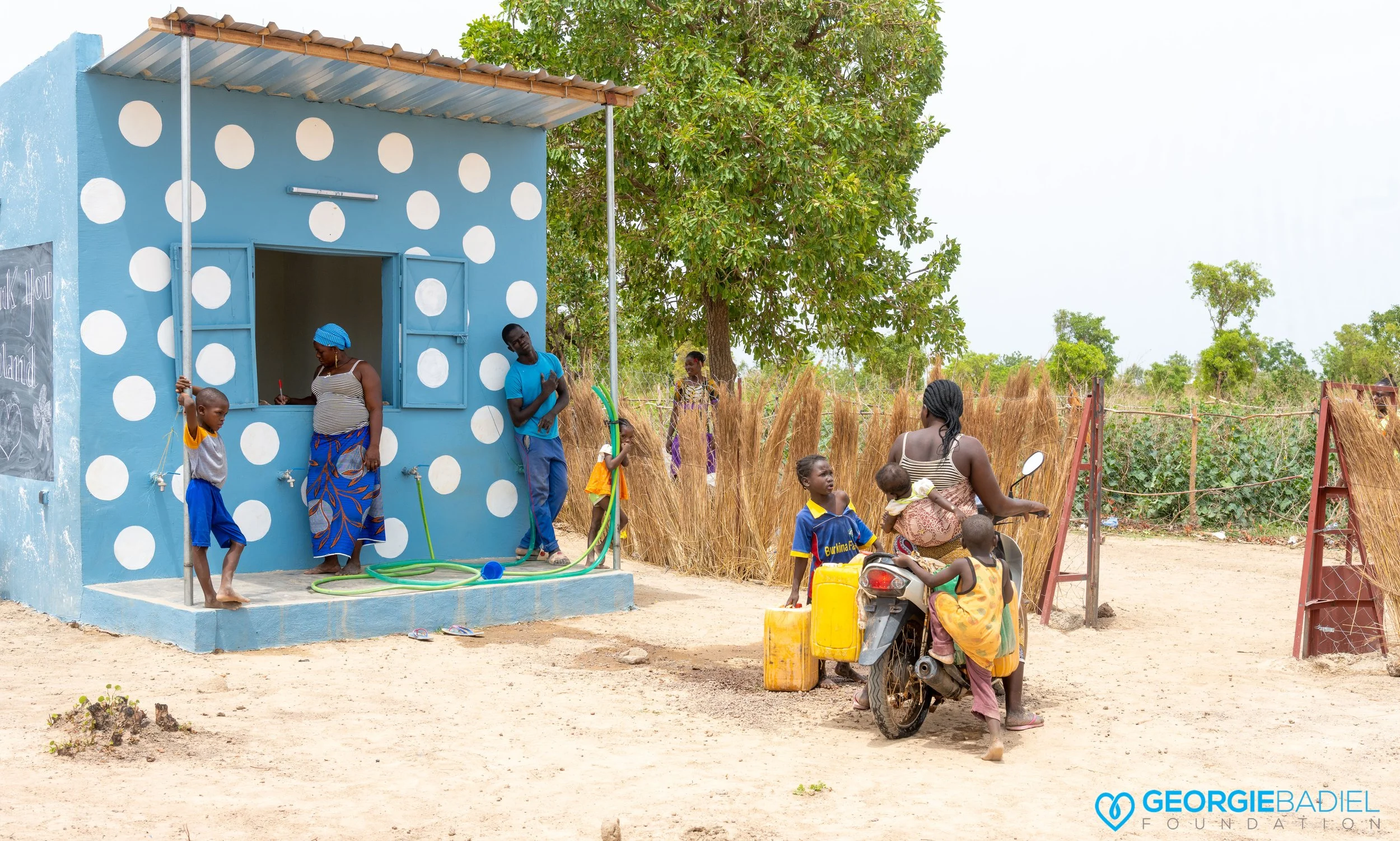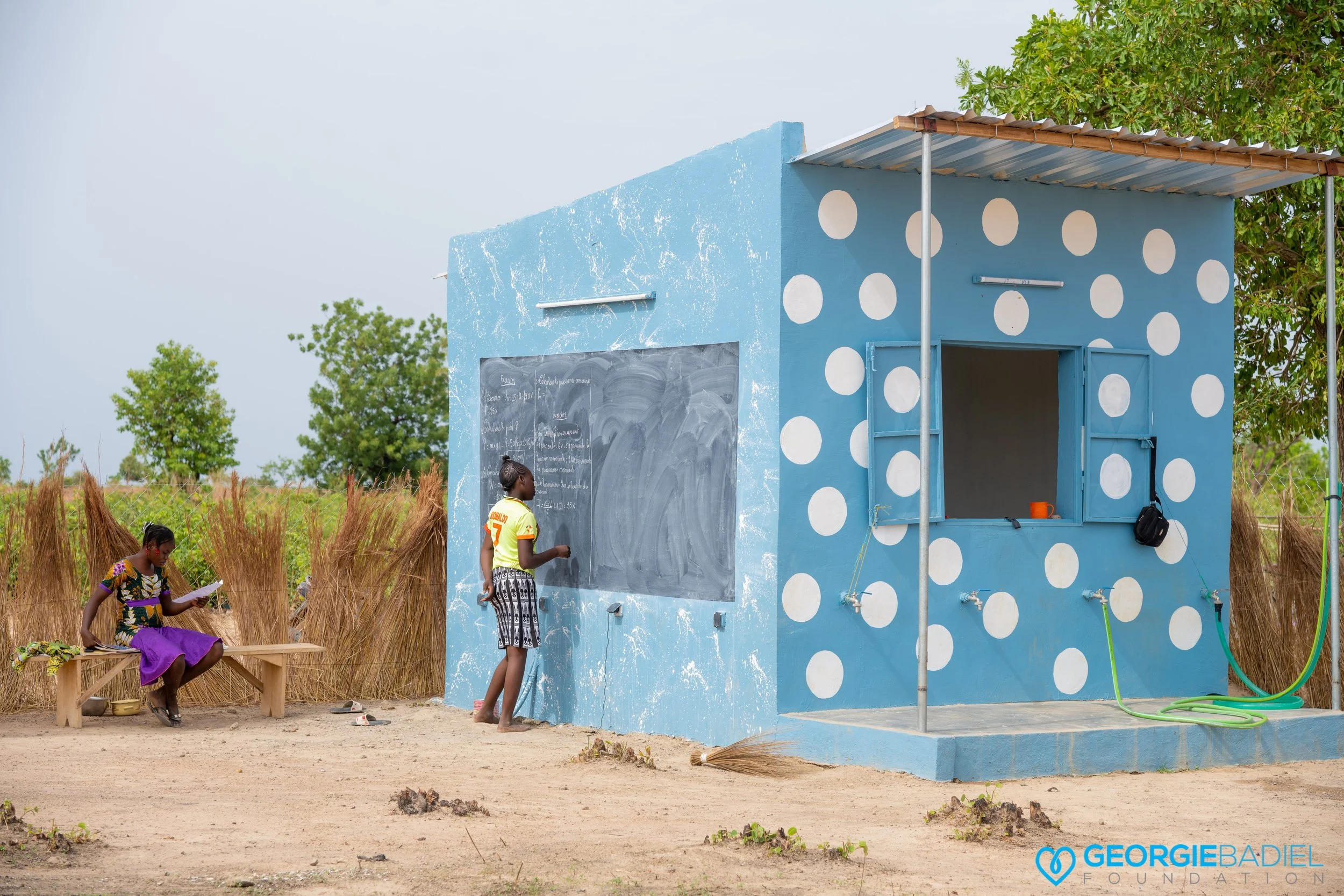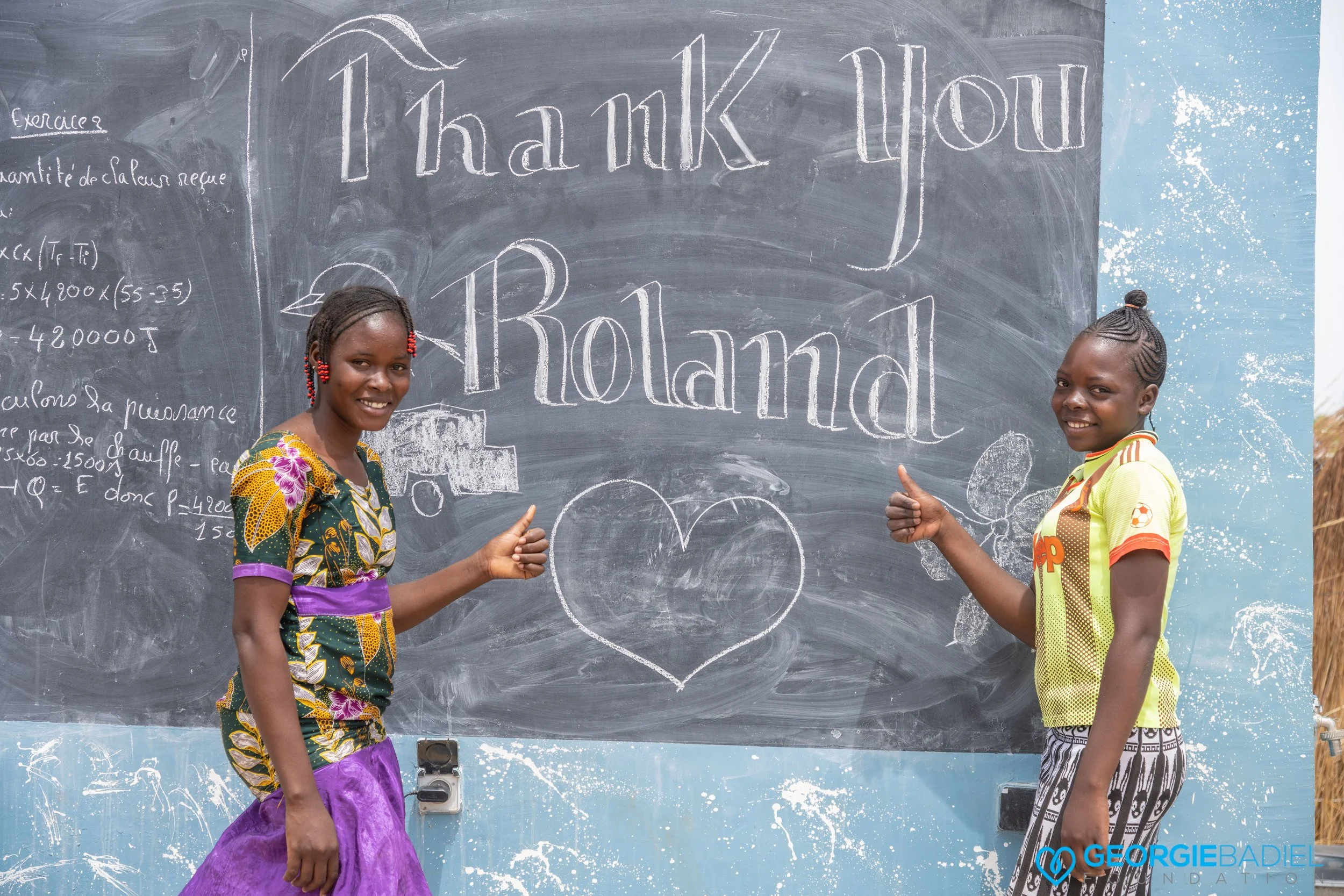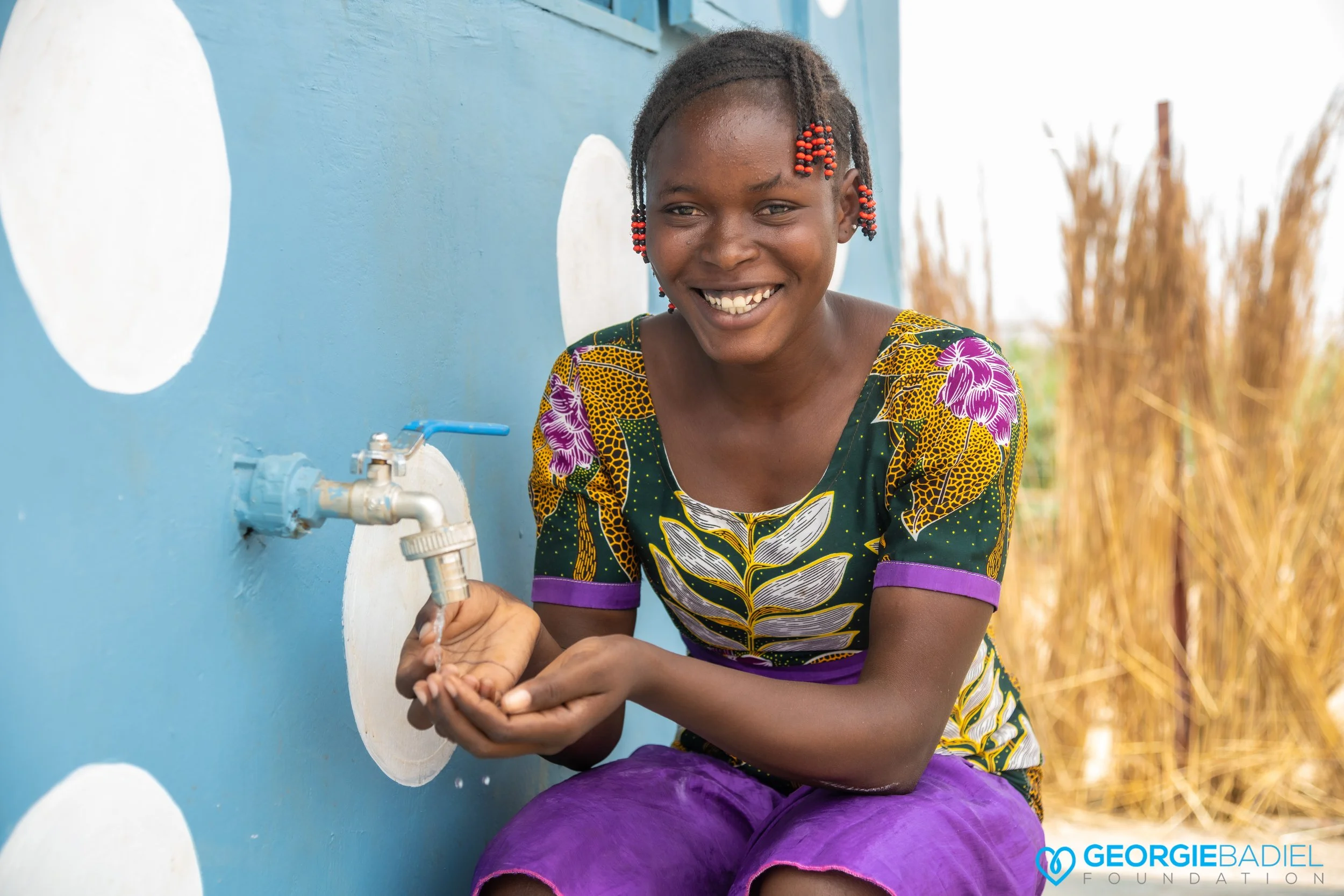Reimagining Water Access with Innovation and Sustainability
The Georgie Badiel Foundation's Oasis Model is designed to provide sustainable community access to clean water while supporting micro-agriculture, livelihoods, learning, and community connection.
The following are key components of a GBF Oasis
RELIABLE & SOLAR-POWERED
Water Tower: Solar-powered and designed to hold a minimum of 5,000 liters (5m³), the tower delivers up to 5,000 liters of clean water per hour.
Meter: Tracks daily water usage and supports transparent, pay-as-you-go contributions for sustainability.
Collection Point: Features up to five spouts for efficiency & easy access.
Staffed Distribution Center: Managed by a full-time attendant to support daily operations, collect payments, and ensure responsible use. Job creation opportunity for the community.
Sustainable Approach: Community members contribute one penny for 20 liters of water. These funds are deposited into an account to support station maintenance and repair.
LEARNING & CONNECTION
Study Corner: An external, well-lit area with a blackboard for learning.
Lighting & Electricity: Solar-powered light poles keep the premises safe after dark. Electrical outlets for community members to charge devices (e.g., cell phones, lamps).
Seating:A community bench for rest, discussion and gathering.
MICRO-AGRICULTURE & LIVELIHOODS
Community Garden: Green space enables women to grow vegetables and herbs to support household income and nutrition.
Sustainable Ecosystem: Gardens are enriched with composted organic waste as part of our circular system.
Local Plants with Purpose:
Moringa trees help purify groundwater and serve as an herbal supplement.
Citronella repels mosquitoes and can be harvested for use or sale.
Shea, mango, and papaya trees offer shade and produce.
Animal Watering Point: A barrel provides clean water for livestock.
Traditional Fence: A locally constructed enclosure protects crops and secures the space.
EDUCATION & DIGNIFIED SANITATION
Public Toilets: Two accessible and gender-sensitive toilets built to support hygiene and privacy for all community members.
WASH Education: Interactive hygiene education sessions delivered in nearby schools and community spaces to build lifelong habits in water safety, sanitation, and disease prevention.


